How Trump became unstoppable in Iowa
Former president, vulnerable when his campaign launched, now looks ready to dominate.
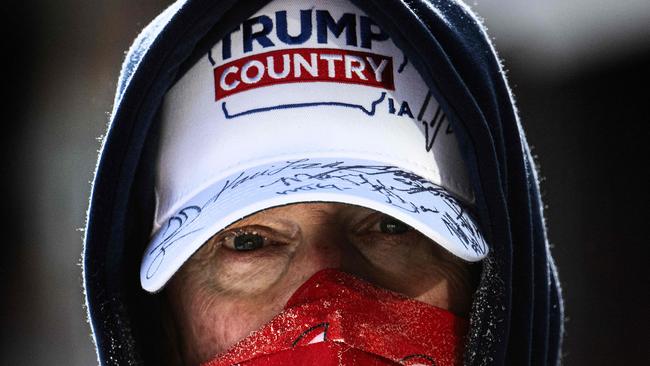
For all Trump’s current dominance, things looked very different when he announced his third bid for the presidency in November 2022. The announcement came just a week after midterm elections in which Republicans had underperformed thanks to a batch of inexperienced Trump-endorsed candidates who lost otherwise winnable gubernatorial and congressional races, and Trump’s political prospects seemed to be at a low ebb. He gave a downcast, low-energy speech in the ornate Mar-a-Lago ballroom; no sitting members of Congress attended, and his own daughter put out a statement saying she wouldn’t be involved with the campaign.
The party appeared ready to turn the page, and Ron DeSantis seemed like the candidate to do it. In that same midterm election, DeSantis had just won re-election as governor of Florida by a staggering 19-point margin in the former swing state. Anti-Trump researchers conducting focus groups around this time found many Republican voters wanted to move on, and some polls showed Trump lagging behind DeSantis nationally and in the early primary states. DeSantis had become a hero to conservatives nationally for his defiant approach to the Covid-19 pandemic and his relentless prosecution of the culture war. The New York Post proclaimed him “DEFUTURE” in a front-page headline, and buried Trump’s announcement in a sarcastically written inside squib. (News Corp—the corporate parent of Dow Jones & Co., publisher of The Wall Street Journal—also owns the New York Post.)
Fourteen months later, Trump has been endorsed by a majority of Republican members of Congress, and DeSantis is in danger of coming in third in Iowa, the state on which he has staked his campaign. At his rally on Sunday, Trump unveiled his first endorsement from a former 2024 primary rival, North Dakota Gov. Doug Burgum, who just a few months ago said he wouldn’t do business with Trump. He leads the field in Iowa by an average of more than 30 points and nationally by more than 50 points.
“I believe he’s the only man who can actually straighten this country out,” said 63-year-old Suzie Morgan, who owns a construction business in Indianola and wore a rhinestone-studded Trump hat. Though she heard DeSantis did good things in Florida, she never considered caucusing for any candidate but Trump as long as he was in the race.
In retrospect, insiders say, the groundwork was laid for DeSantis’s defeat before he even got in the race. “The miscalculation was that the victory in Florida and the record in Tallahassee were enough to carry him to the nomination,” said a former operative for a DeSantis-aligned effort who spoke on condition of anonymity. “It would have taken a perfect campaign to beat Trump, but it was a winnable race.”
DeSantis had a plan: He would wait to announce his campaign until after the spring 2023 Florida legislative session, giving him an opportunity to rack up conservative policy victories and showcase his effectiveness in his home state. The legislature that DeSantis ruled with an iron fist passed a six-week abortion ban, expanded school vouchers and gun rights, curtailed diversity programs and transgender treatments and restricted unions and socially conscious investing. GOP primary voters, the thinking went, would see DeSantis as focused on substance where Trump was full of empty bluster.
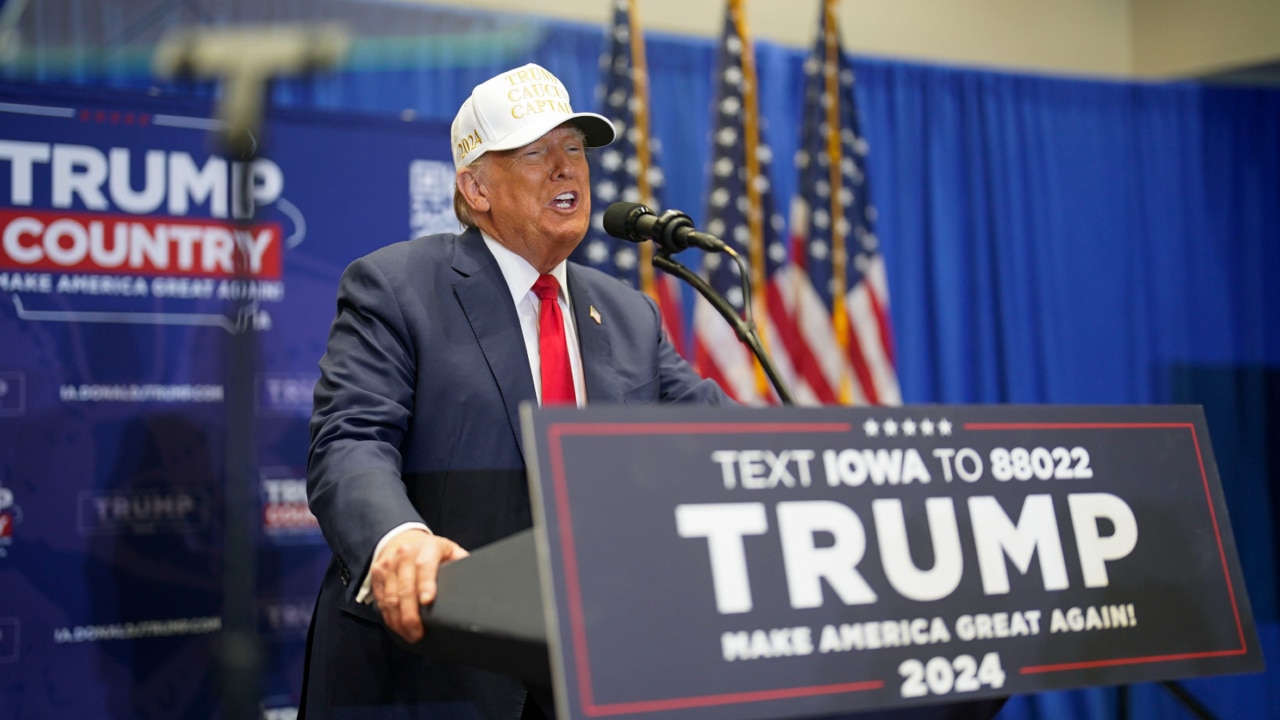
What DeSantis didn’t bargain for was that Trump wouldn’t sit idly by while all this was happening. A Trump-backing super PAC went on the air in early 2023 with more than $10 million of national TV ads bloodying DeSantis’s image. The former president had hired two brutally effective and experienced operatives to run his campaign: Chris LaCivita, famed for his work two decades ago thrashing Democrat John Kerry with the Swift Boat Veterans for Truth, and Susie Wiles, who had helped DeSantis get elected before being unceremoniously ejected from the governor’s orbit. Campaign observers credit them with turning the once-shambolic Trump operation into a lean, mean, professionally run shop that missed no opportunity to stifle DeSantis early.
Perhaps the campaign’s most decisive moment came in late March, when a Manhattan grand jury made Trump the first-ever former president to be criminally indicted, charging him with 34 counts of falsifying business records for having allegedly paid off actress Stormy Daniels to conceal their affair on the eve of the 2016 election. DeSantis, still not yet a candidate, joined Haley, Vivek Ramaswamy and Mike Pence in decrying the prosecution as the politically motivated action of a “Soros-backed” liberal D.A.
The reflexive defense of Trump would repeat as the former president faced more and more criminal charges—as well as civil trials for rape and fraud—over the ensuing months. This dynamic of his political opponents taking his side would ensure that Trump wasn’t merely inoculated but actually gained strength politically as he faced an unprecedented onslaught from the legal system. At his Iowa rally Sunday, numerous attendees wore T-shirts featuring Trump’s mug shot, with slogans such as PATRIOTS NEVER SURRENDER.
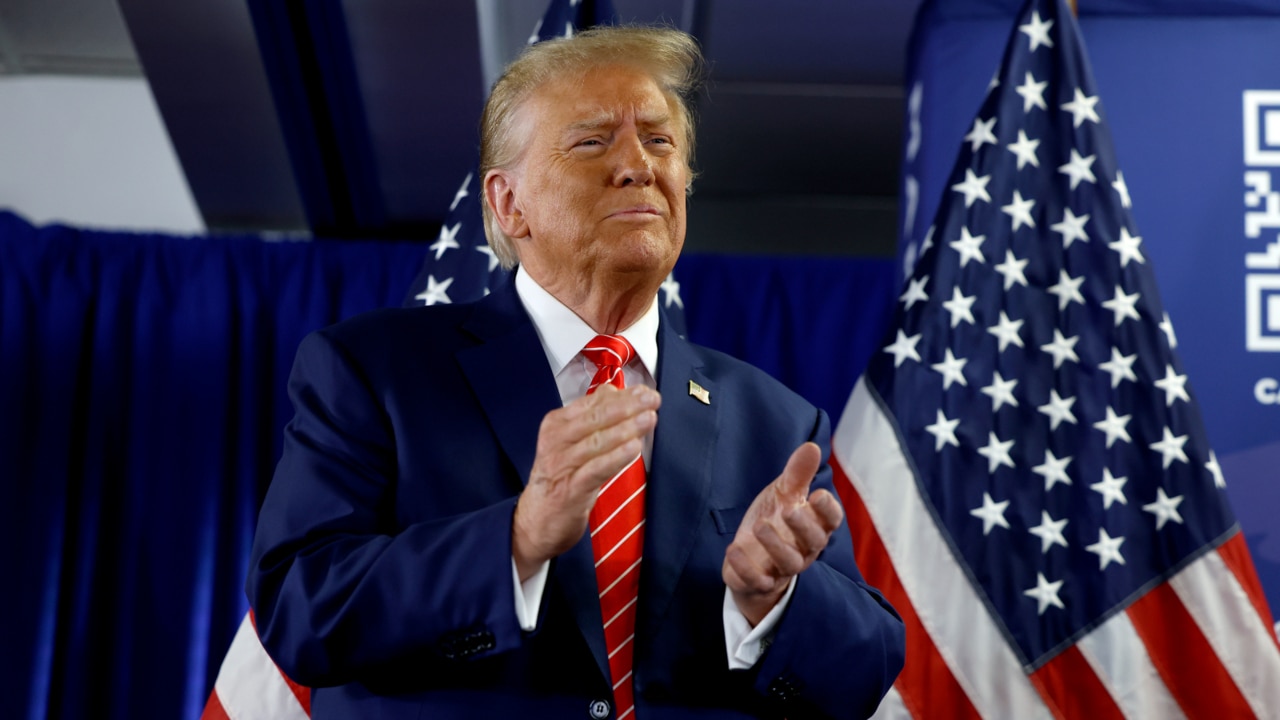
When DeSantis finally did get in the race, in late May, his launch was a disaster. Aiming to do something innovative to symbolize his new-generation appeal and ally himself with an edgy right-wing figure, he announced his campaign in a live Twitter conversation with Elon Musk, the mercurial Tesla chief executive who had recently purchased the social-media platform. But the “space” was marred by technical difficulties and inaccessible to the sort of normal rank-and-file voters who live in places such as Iowa, and DeSantis never followed it up with a traditional in-person event at which he could have showcased his attractive family and compelling life story. It was an apt preview of a campaign that would continue to be hobbled by structural problems: Within a few months, DeSantis’s operation, helmed by Tallahassee insiders who lacked national experience, would go through multiple “reboots” and leadership changes.
DeSantis’s camp had planned to build a lavishly funded ground game in key states, overseen by a super PAC that couldn’t legally coordinate with the candidate. But the super PAC, Never Back Down, devolved into recriminations and repeatedly seemed to be at odds with the campaign’s strategy. Fundraising fell short of expectations as donors were put off by DeSantis’s hard-right policies and uninspiring performance on the stump. By the fall, rival operatives would nearly come to blows and the super PAC’s top strategist would quit in protest.
Another pivot point in the campaign came when the debates began in late August. Trump, already sitting on a sizable polling lead, decided not to attend. Without the front-runner, the debates were minor-league affairs, with Trump’s rivals mainly turning on each other rather than going after him. Trump campaigned sparingly and didn’t post on Twitter, despite Musk unbanning his account. By staying largely out of sight even as his legal issues mounted, he avoided reminding many voters of the more unsavory aspects of his persona.
Most of the other GOP candidates avoided going after Trump, perhaps understandably: to do so was to invite a backlash. The candidate who attacked Trump most frontally, former New Jersey Gov. Chris Christie, was repaid with the field’s lowest favourable ratings among Republican voters.
Donors, unsure if Trump could be beaten, hesitated to take sides. One anti-Trump conservative group tested a bevy of attack ads and found that none of them dented Trump’s popularity and that most of them actually bolstered his appeal with Republican voters.
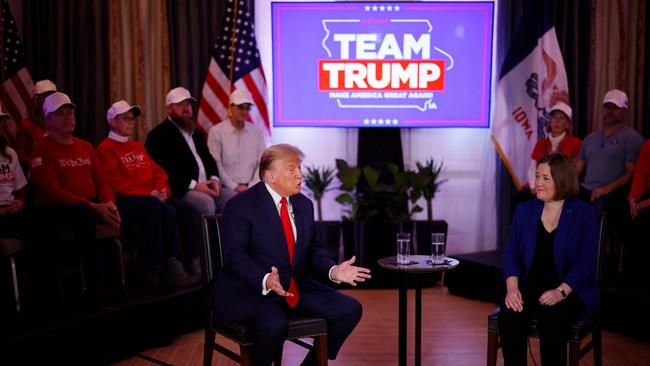
Events, too, worked to Trump’s advantage. President Biden’s declining popularity made the incumbent appear increasingly beatable, undermining DeSantis’s and others’ argument that Trump couldn’t win in November. Overseas conflicts and rising prices made some voters look back favourably on Trump’s time in office. A chaotic situation on the southern border reinforced Trump’s signature issue. Legal issues surrounding Biden’s son Hunter and a special-counsel investigation of classified documents retained by Biden helped muddy the waters around Trump’s indictments.
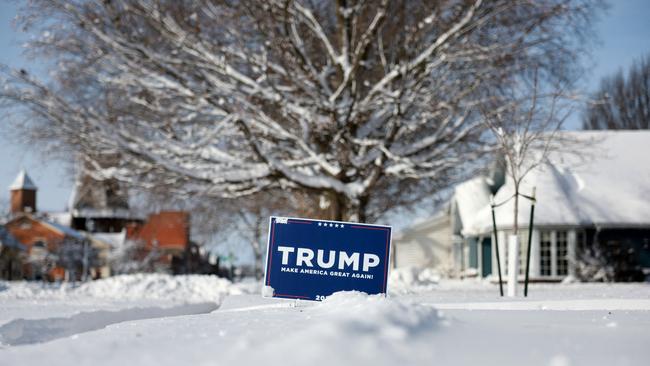
With DeSantis’s team consumed by infighting, the GOP establishment that hoped for an alternative to Trump began to fracture and gravitate elsewhere — chiefly to Haley, who snagged the endorsements of Americans for Prosperity and New Hampshire Gov. Chris Sununu in December. The respected Iowa Poll, released Saturday, showed Haley rising to second place in the state, and some surveys have her competitive with Trump in New Hampshire. On Sunday, she was also endorsed by former Maryland Gov. Larry Hogan. But most campaign observers doubt she can topple the frontrunner, given that she appeals mainly to college-educated, moderate and anti-Trump voters, a minority in the GOP in most states.
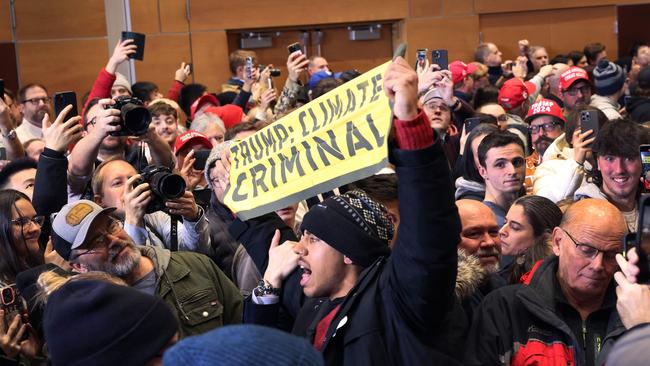
On the eve of the caucuses on Sunday night, hundreds of DeSantis supporters packed a warehouselike venue in the Des Moines exurb of Ankeny. The candidate was introduced by Iowa Gov. Kim Reynolds, a popular conservative who put her political future on the line to endorse him, drawing Trump’s wrath. Reynolds and DeSantis bonded over their willingness to buck Covid restrictions in 2020, and she said she sees him as a kindred spirit focused on delivering results.
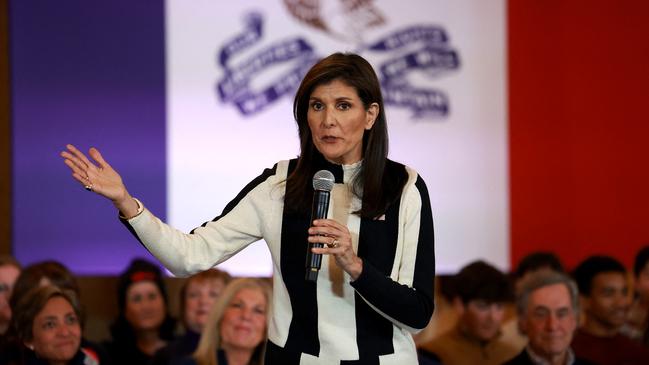
DeSantis stood before the crowd on a raised platform, flanked by the right-wing congressmen and talk-show hosts who once hoped he would take the conservative movement into the future. Trump, he complained, valued personality over substance.
“You can be the most worthless Republican in America, but if you kiss the ring, he’ll say you’re wonderful,” DeSantis said. “You can be the strongest, most dynamic, successful Republican and conservative in America, but you don’t kiss that ring, then he’ll try to trash you. You know what? You deserve a nominee that’s going to put you first, not himself.”
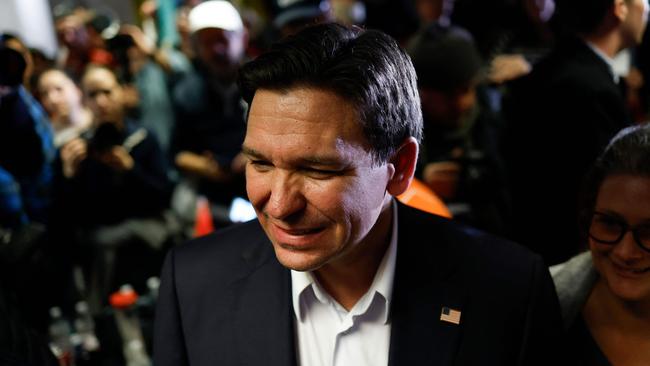
The room pulsed with an excitement that was tinged with desperation, and some attendees realised it might be their candidate’s last stand. Rick Hermann, a 62-year-old sales representative for an auto-parts supplier and lifelong Ankeny resident, decided months ago he would caucus for DeSantis based on his approach to policy and the fact that he could serve two terms if elected. “President Trump delivered at a high level when he was in office,” Hermann said. “I just think it’s time for something different.” Asked if he thought DeSantis still had a shot at winning, Hermann didn’t hesitate. “Nope,” he said.
The Wall Street Journal


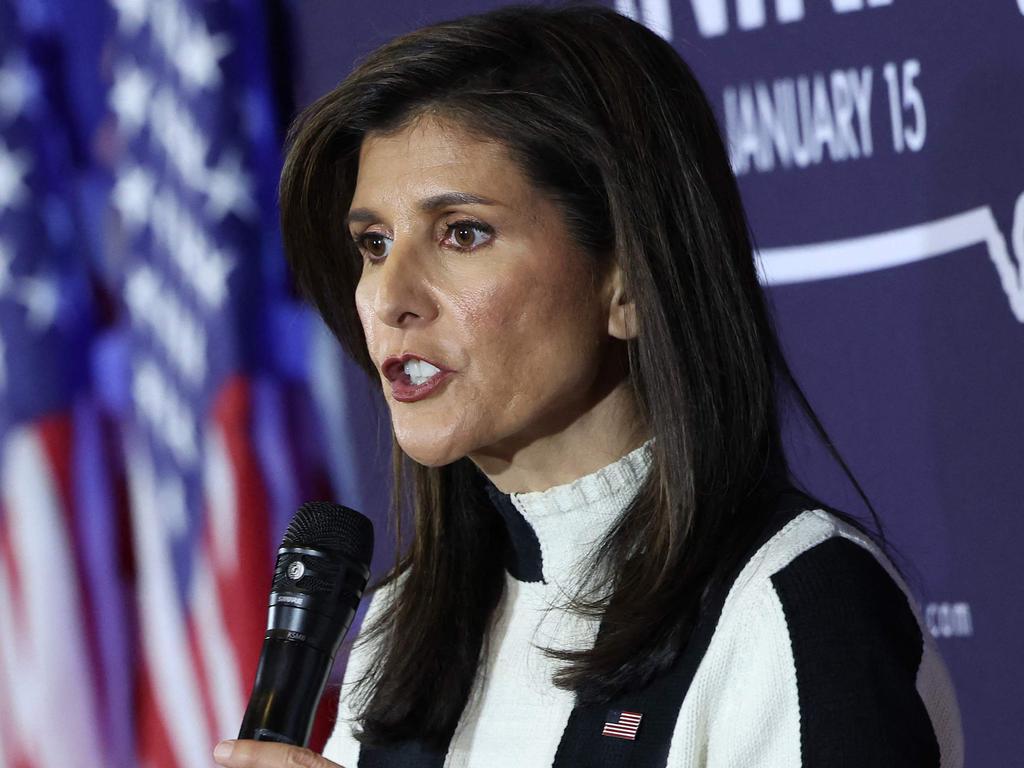

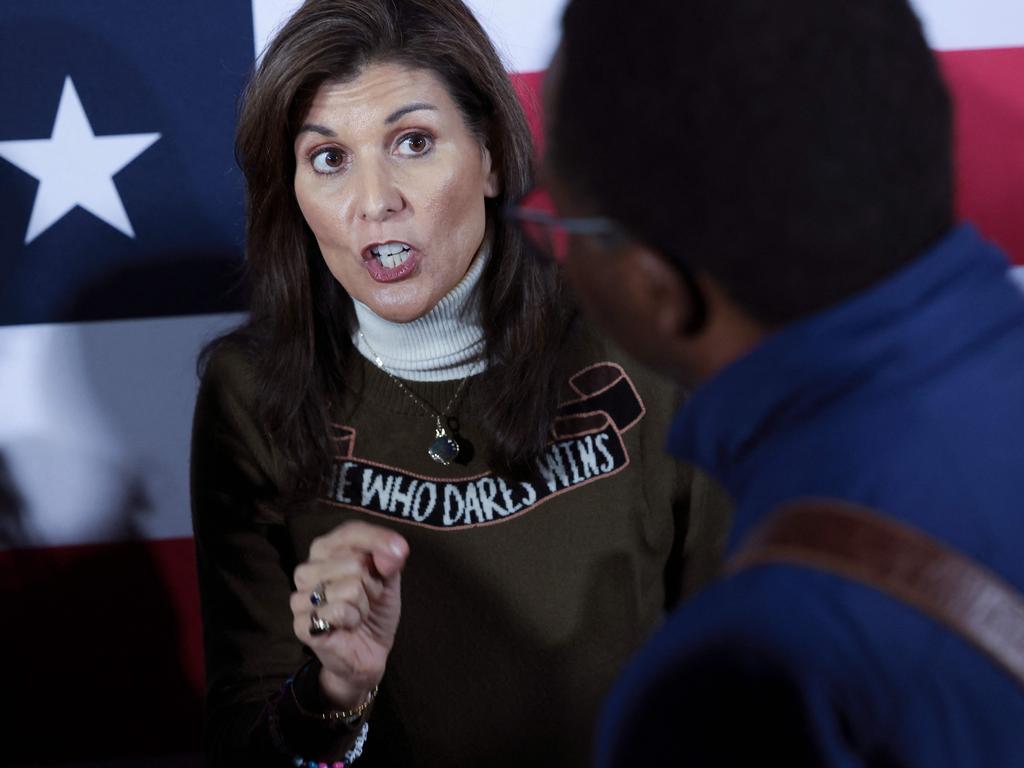
To join the conversation, please log in. Don't have an account? Register
Join the conversation, you are commenting as Logout